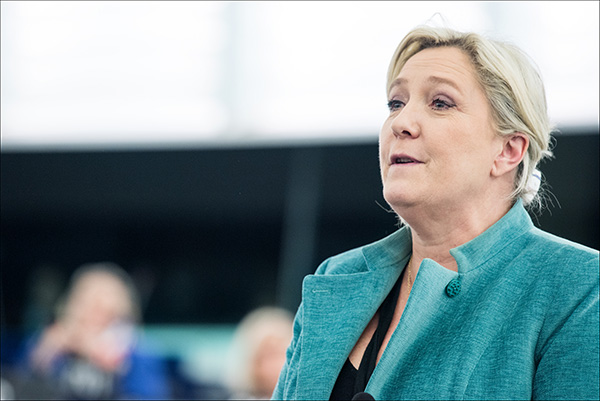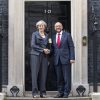
On 15 March the Netherlands kicks off an electoral super year in an EU that is teetering. Whether it remains intact, and even advances, or collapses, will depend to a large extent on what happens at the polls. French presidential elections will be held in April, followed by legislative elections, and there will be general elections in Germany in November, as well as in the Czech Republic, Bulgaria and possibly Italy. There is a great deal at stake for the future of the EU. Forecasts from just a few weeks ago no longer count. Pictures emerging from opinion polls are changing all the time, reflecting electorates that are disgruntled and upset, as well as the shadow being cast by Donald Trump’s accession to the White House.
With the exception of Germany (and even there it is evident to some extent), the great divide seems not be so much between right and left as between pro- and anti-Europeans, or between globalists and protectionists. A report titled Post-Truth, Post-West, Post-Order drawn up for the Munich Security Conference, held last week in the Bavarian capital, argues that public support for the ‘international economic order’ as represented by the World Trade Organisation and other multilateral treaties, in other words globalisation, is ‘unravelling’. Citizens must be listened to.
With these three national elections alone –the Netherlands, France and Germany– the possible permutations throw up too many scenarios for a useful analysis. Let us focus on just three.
1. Victory for Geert Wilders in the Netherlands
The opinion polls suggest that the parties in the current liberal-socialist coalition led by Mark Rutte are going to come to grief and first place will be claimed by Geert Wilders, the Eurosceptical and anti-immigration leader of the Party for Freedom. This may give succour to similar organisations in France (the National Front) and Germany (Alternative for Germany, AfD). But it does not entail, in a system as heavily geared towards proportional representation as the Dutch one is, subsequently requiring arduous negotiations to form governing coalitions, that Wilders will head the next administration. In fact, the traditional parties –which now only account for 42% of support in the opinion polls, as opposed to 60% five years ago– have vowed not to enter into coalition with him, although this cannot be ruled out. Whatever transpires, it will have repercussions in a country where due to recent legislative changes any transfer of sovereignty to the EU has to be submitted to a referendum, as has already happened with the agreement with Ukraine, instigated by the Forum for Democracy. Wilders is not the only Eurosceptic running in elections where 28 parties are competing. Between seven and 11 usually get elected, but this time 14 may win seats. And, at least since the end of World War Two, none has ever managed to obtain an absolute majority. The fact that a group of Dutch multinationals has signed a pact against ‘encroaching populism and negativism’ does not mean that it will not win support from the voters.
2. Victory for Le Pen in France
According to the polls, Marine Le Pen has every chance of winning the first round and what happens in the second will depend in part on who her opponent is. If she becomes the President of the French Republic, it could mark the end of the EU as we know it. The EU can withstand a Brexit, but not a Frexit, or even a French withdrawal from the euro. A Le Pen victory would probably strengthen Angela Merkel’s prospects in Germany amid the panic that would ensue. She would be needed to manage a disaster.
3. Victory for Macron in France and Schulz in Germany
As things currently stand, the polls place the young social-liberal and pro-European Emmanuel Macron in second place in the first round and winner of the second, although the gap is closing and the race is still wide open. If he is displaced by François Fillon, embroiled in nepotism scandals, or the radical socialist Benoît Hamon, the situation could tip in Le Pen’s favour. Macron is still fine-tuning his programme, but we know what he represents: a reinvention of the ‘Third Way’ adjusted to the times and his country.
What happens in France in the spring could influence what befalls Germany in the autumn. The decision of the social-democrat Martin Schulz to run has put the cat among the pigeons, and placed Merkel in a bind. Schulz is running a very pro-European prelude to his campaign: ‘Make Europe great again’, he proclaims in riposte to Trump’s ‘Make America great again’. With Macron in Paris and Schulz in Berlin there would probably be some easing of austerity policies in the Eurozone, although these can count upon wide social support in Germany. The problem of Greece may be addressed differently. And there could be a re-launch of the task of constructing Europe. Merkel might do this too, albeit in a less flexible manner, and thus the most decisive elections for Europe seem to be the French ones.
A note of caution: the weakest link in the Union could be Italy, if there is an early election and it is won by Beppo Grillo and his Five Star Movement, a libertarian party in the American sense of the word, and anti-euro. Time will tell.


